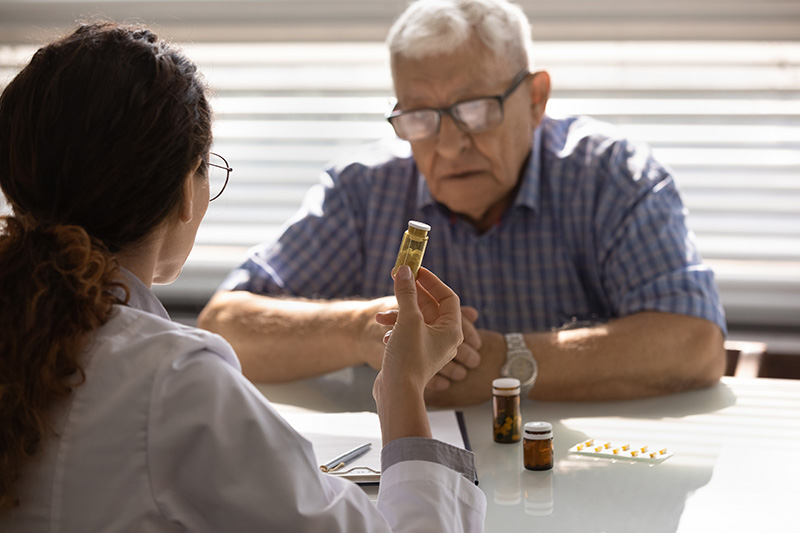Outpatient Addiction Treatment
Outpatient addiction treatment is a flexible approach to addiction treatment, without the intensity of a residential programme.
Outpatient services are rehabilitation programmes that require individuals to travel to a treatment facility, NHS service or private therapist to attend scheduled sessions, typically weekly.
Choosing an Outpatient Service
If you are ready to pursue outpatient addiction treatment, the next stage is choosing a rehabilitation to suit your recovery needs. To help you make the most valuable decision, we look at the different types of outpatient programmes including addiction management and recovery strategies.

Home Detox & Community Detox Services
While many attempt home detox on their own, the risks can far outweigh the benefits. Detox should not be attempted without the supervision of a GP. For example, alcohol dependency may require a medically assisted detox because withdrawal symptoms can become life threatening.
Professional and private services are the alternative to attempting home detoxing on your own. Professional in-home detox services create a unique detoxification plan for individual patients who do not want to stay at a hospital or inpatient programme. The process of detox is conducted in the privacy and comfort of home but with the supervision and care of experienced and trained medical providers.
If you are interested in free community detox services, the NHS can provide free support but there may be a waiting period of a few weeks/months. To improve your chances of getting placed for detox, a GP may refer you to an NHS detox centre. Alternatively, private detox services can place individuals within 24 hours.
A professional home detox service can cost between £1000 – £2000.

Day Care Services (Outpatient Rehab)
It can be difficult to commit to a residential rehab which makes day care services a valuable outpatient treatment programme for alcohol addiction and drug dependence.
Once detox is completed, day care services provide ongoing therapy to support recovery and reduce the potential for relapsing.
The flexibility of the programme makes it a fair choice for those in recovery. It includes a variety of therapies such as group therapy, holistic therapy, individual support, general counselling, and planned recovery. Sessions are scheduled according to an individualised timeframe for treatment. The costs are less for day care rehab compared to inpatient programmes.
Therapy & Counselling
Therapy and counselling remain at the core of inpatient and outpatient rehabilitation. When therapy is sought on an outpatient basis, you will meet with a counsellor on a scheduled basis to attend therapeutic sessions. A typical session is between 40 minutes to an hour. Therapy and counselling are available privately or via a referral from your GP.
Addiction therapy incorporates various treatment modalities. Let’s take a closer look at the different types of therapy that work best for addiction.
Cognitive Behavioural Therapy (CBT)
CBT is one of the most common therapies provided for alcohol and drug addiction. The focus of CBT is the connection between beliefs, attitudes, emotions, and behaviours. Therapeutic elements involve coping and learning strategies (contingency management), skill building, and techniques for overcoming the triggers that lead to relapse (NCBI).
Dialectical Behavioural Therapy (DBT)
Dialectical behavioural therapy is derived from CBT. It is most commonly applied in patients presenting with comorbidities such as psychological conditions and substance dependence. DBT emphasizes the importance of abstinence and maintaining mental clarity to prevent relapse (NCBI).
Rational Emotive Behaviour Therapy
Rational emotive behavioural therapy emphasizes the importance of challenging negative thoughts. It encourages individuals to eliminate self-defeating thoughts and attitudes while helping you realize the benefits of rational thinking (WebMD). Such beliefs help combat challenges including the ability to cope with environmental stress and obstacles.

Support Groups
There is no doubt that support groups are beneficial in outpatient addiction treatment. For many, the challenges of addiction include feelings of isolation, constant judgement, and immense stress. By participating in a support group, you have the opportunity to connect with others who are going through similar experiences.
It is about relating to others who are affected by addiction and knowing that you are not alone. Support groups offer a platform for individuals who are addicted to alcohol and/or drugs to learn new coping strategies and treatment methods. It also helps individuals feel optimistic and less shameful about addiction (William White Papers).
There are many types of support groups including Alcoholics Anonymous (AA), Narcotics Anonymous (NA), and Cocaine Anonymous (CA). AA is well known for the emotional support it provides its members who also explore how they are managing to avoid the consumption of alcohol in daily life. Each of these services provide encouragement and a true sense of hope which are important in preventing relapse and working towards recovery.
Family Support
Substance addiction not only affects the lives of those addicted to drugs or alcohol but also the lives of their loved ones. Family support is an integral part of the journey to recovery for all involved in the process. Where relatives and loved ones feel anger, resentment, and even grief, family counselling services address the underlying negative emotions and challenges to help individuals cope.
An example of a family support service is ADFAM. The therapy aims to provide relief to families who need to talk to someone sympathetic to your situation.
Free vs. Paid Outpatient Services
When you are seeking outpatient addiction treatment, the biggest question is whether you should pursue free or paid services?
The NHS helps connect people to drug and alcohol recovery services. Although free, waiting lists tend to be quite long, and services tend to many patients making it less likely that you will receive individualised care.
Paid services provide access to detox services and therapy immediately. For families who are concerned about the well-being of their loved ones, instant access to psychological and addiction counselling with private therapy offers relief. It also prevents individuals from having days to weeks to change their minds about seeking the support that they need. The limitation of private outpatient care is the cost. From a professional home detox to scheduled counselling sessions, it could cost a few thousand pounds. The costs depend on the duration of treatment and the services included such as private detox, meeting with a therapist, and attending day rehab.
The Pros and Cons of Outpatient Addiction Treatment
To help you make the best decision for your recovery you need to determine whether outpatient therapy is right for you. This includes a look at the pros and cons of outpatient addiction treatment.
The Pros of Outpatient Addiction Treatment
Outpatient rehabilitation is a flexible option for those who cannot commit to a residential rehab or cannot cover the costs of an inpatient programme.
You can continue to attend work while receiving treatment. Many people who attend inpatient programmes are unable to maintain employment because of the duration of therapy.
Manage your daily lifestyle without the full-time commitment of inpatient therapy. Outpatient services help you tend to your family and everyday needs while receiving the tools and support to overcome addiction.
The Cons of Outpatient Addiction Treatment
Outpatient therapy is preferred for moderate addiction and for those who do not require full-time monitoring. Because you will remain in the same environment and exposed to the same triggers, there is a higher risk of relapse. When you are placed in residential rehab, you are removed from the social circles and triggers that maintain addiction. This improves the ability to achieve sobriety and reduces the chance of relapse.
If you have made the brave decision to seek therapy for alcohol or drug addiction, outpatient services can help you with support services, professional tools, and the motivation needed to live a rewarding and healthy life.

